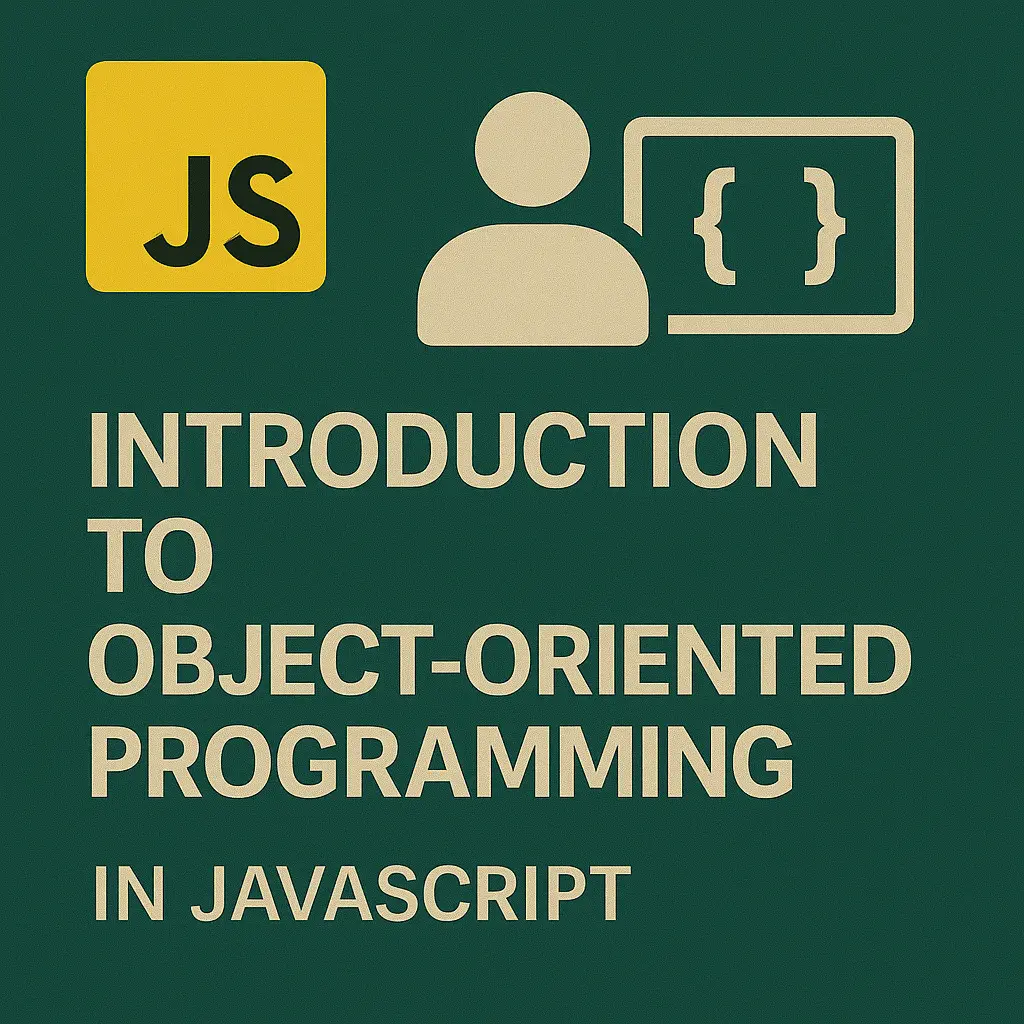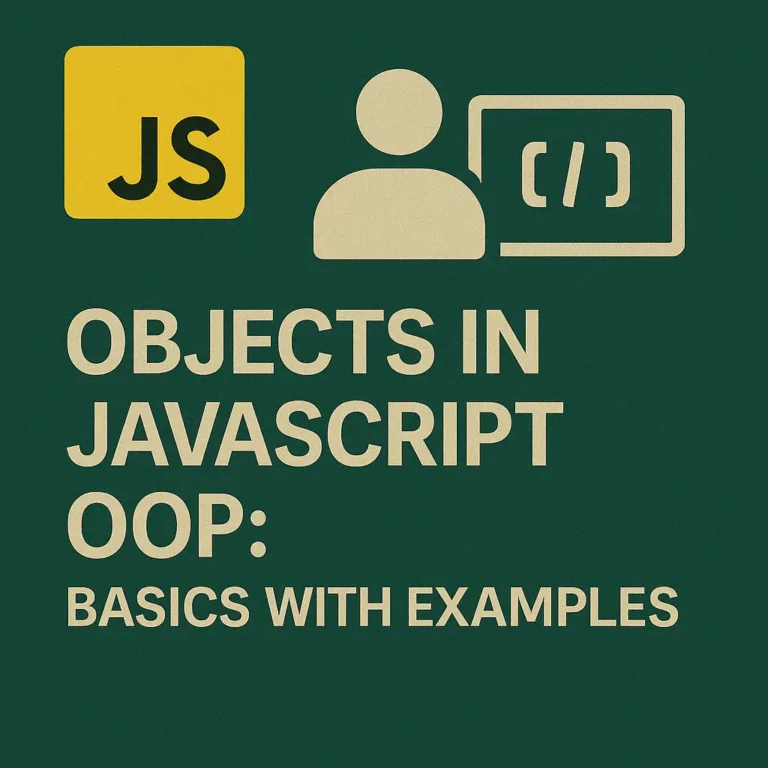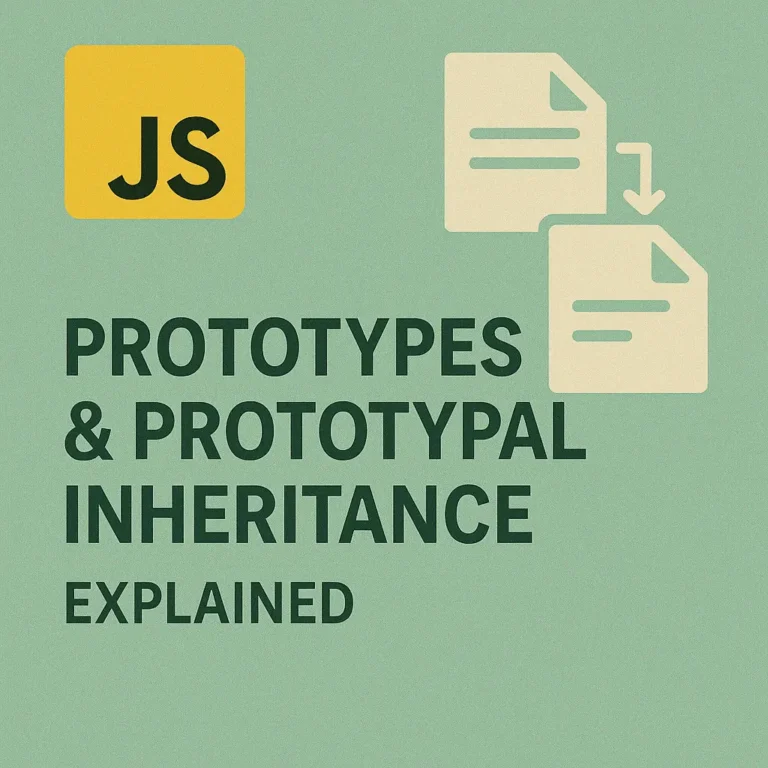JavaScript, originally conceived as a simple scripting language for web pages, has evolved into a versatile language capable of supporting complex applications. Understanding OOP in JavaScript is not just beneficial; it’s essential for building scalable, maintainable, and efficient codebases.
What is OOP?
At its core, Object-Oriented Programming revolves around the concept of objects. An object is a self-contained entity that consists of both data (attributes) and behavior (methods). These objects can interact with each other, exchanging data and invoking methods to achieve specific tasks.
In JavaScript, objects are fundamental entities, and OOP is primarily implemented through prototypes. Every object in JavaScript is linked to a prototype object from which it can inherit properties. This prototype-based approach allows for dynamic object creation and modification, providing flexibility in code design.
Principles of OOP
Encapsulation:
Encapsulation refers to the bundling of data and methods that operate on that data within a single unit, i.e., an object. This principle promotes data hiding, where the internal state of an object is accessible only through well-defined interfaces. Encapsulation helps in reducing complexity and dependencies, leading to more maintainable code.
// Encapsulation in JavaScript
class Car {
constructor(make, model) {
this.make = make;
this.model = model;
}
drive() {
console.log(`Driving ${this.make} ${this.model}`);
}
}
const myCar = new Car('Toyota', 'Camry');
myCar.drive(); // Output: Driving Toyota Camry
Inheritance:
Inheritance allows objects to inherit properties and methods from other objects, facilitating code reuse and hierarchical classification. In JavaScript, inheritance is achieved through prototype chaining, where objects inherit from other objects.
// Inheritance in JavaScript
class Animal {
speak() {
console.log('Animal speaks');
}
}
class Dog extends Animal {
bark() {
console.log('Woof!');
}
}
const myDog = new Dog();
myDog.speak(); // Output: Animal speaks
myDog.bark(); // Output: Woof!
Polymorphism:
Polymorphism allows objects of different types to be treated as objects of a common superclass. It enables flexibility in method implementation, allowing subclasses to provide their own implementation of methods inherited from the superclass.
// Polymorphism in JavaScript
class Shape {
area() {
return 0;
}
}
class Circle extends Shape {
constructor(radius) {
super();
this.radius = radius;
}
area() {
return Math.PI * Math.pow(this.radius, 2);
}
}
class Square extends Shape {
constructor(side) {
super();
this.side = side;
}
area() {
return Math.pow(this.side, 2);
}
}
const circle = new Circle(5);
const square = new Square(4);
console.log(circle.area()); // Output: 78.53981633974483
console.log(square.area()); // Output: 16
Importance and Benefits of OOP
OOP brings numerous advantages to JavaScript development:
Modularity:
OOP encourages breaking down complex systems into smaller, manageable modules (objects). Each object encapsulates a specific functionality, promoting code organization and reusability.
Code Reusability:
Through inheritance and composition, OOP enables code reuse. Common functionalities can be defined in superclass objects and inherited by subclasses, reducing redundancy and promoting efficient use of code.
Ease of Maintenance:
Encapsulation ensures that changes to the internal state of an object do not affect other parts of the program. This reduces the risk of unintended side effects and makes code easier to maintain and debug.
Scalability:
OOP provides a structured approach to development, making it easier to scale applications as they grow in complexity. New features can be added by extending existing objects or creating new ones without significantly impacting the overall architecture.
Abstraction:
OOP allows developers to focus on the essential aspects of an object while hiding unnecessary details. This abstraction simplifies the interaction between different parts of the system, making code more understandable and adaptable.
Conclusion
In conclusion, Object-Oriented Programming is a powerful paradigm that enhances the capabilities of JavaScript, enabling developers to build robust, maintainable, and scalable applications. By adhering to the principles of OOP and leveraging its benefits, developers can unlock the full potential of JavaScript for a wide range of use cases.






